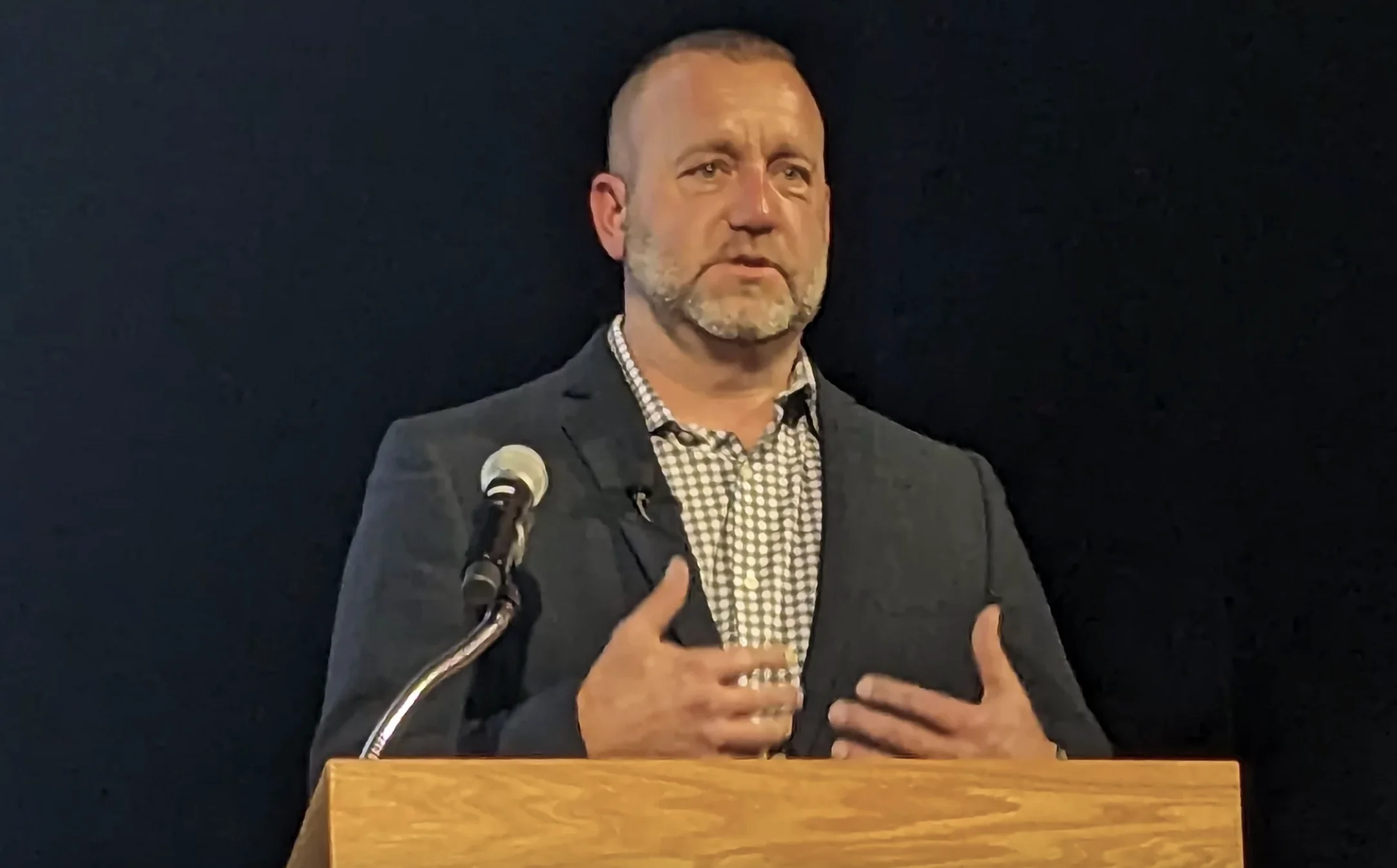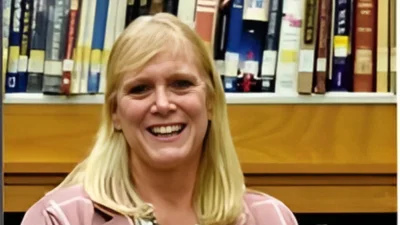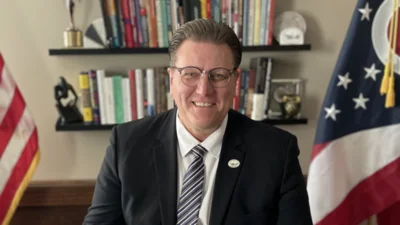The Ohio Power Siting Board (OPSB) voted 8-1 on Aug. 21 to deny a rehearing on the proposed Frasier Solar Project, a 120-megawatt facility planned by Open Road Renewables for Miller and Clinton townships in Knox County.
The request for a rehearing was filed by nonprofit Preserve Knox County Ohio (PKCO) and 17 landowners, who raised concerns about election results, public input, and environmental impacts. The board rejected the rehearing in a brief vote, which some opponents said reflected inadequate consideration of the issues.
Ben Dean of PKCO said the OPSB dismissed the appeal without discussion, describing the board as a “rubber stamp” for staff recommendations.
Jared Yost of Knox Smart Development responded to the OPSB’s denial during an interview with Mount Vernon News.
“I’m deeply disappointed by the Ohio Power Siting Board’s decision to deny a rehearing,” said Yost. “It reflects a troubling precedent—where the interests of out-of-state developers are prioritized over the voices of local communities.”
“The broader implication is clear: if state agencies continue to dismiss local input, we risk eroding public trust in the democratic process,” he said. “Communities deserve a meaningful seat at the table—not just a checkbox in a procedural timeline.”
Yost and Knox Smart Development were among the first to raise a red flag about the pending industrial solar development, prompting a town hall meeting in late 2023.
“This project poses significant harm to both Miller Township and the City of Mount Vernon,” Yost said. “Portions of the proposed site lie within city limits and conflict directly with established zoning and long-term growth plans. Moreover, the project is incompatible with Knox County’s comprehensive plan, which was developed to guide sustainable development and preserve the region’s character.”
Advocacy efforts led by Yost and others drew attention to the Frasier Solar Project, which had been approved with little public awareness under the oversight of former Commissioner Thom Collier.
A former member of the Ohio House of Representatives, Collier served three terms on the Knox County Commission before losing his re-election bid, largely due to his support for the project.
In 2024, Drenda Keesee—who defeated Collier in the primary—and Barry Lester were both elected to the commission after campaigning explicitly against large-scale solar.
In the wake of growing public concern, 19 of the county’s 22 townships, along with numerous local government entities, formally voted to oppose the Frasier Solar Project and similar large-scale solar developments.
“Local elections and township resolutions are not symbolic, they are the most direct expression of community will,” Yost said. “In Knox County, voters decisively replaced two of three commissioners with candidates who opposed the Frasier Solar Project. That outcome should have sent a clear message to the OPSB: the community does not support this development.”
The OPSB’s latest vote, identical to its June 26 approval of the project, was marked by just one dissenting voice in local ad hoc board member Galen Smith, who stated his vote represented the overwhelming opposition by township residents.
Despite that electoral mandate, Commissioner Bill Pursel—the lone commissioner not voted out—cast his deciding vote in favor of the project while serving as the county’s OPSB representative.
Pursel’s position is at odds with the current Board of Commissioners, the City of Mount Vernon and numerous local agencies and residents.
“One of the most troubling aspects of this process has been the vote cast by County Commissioner Bill Pursel, who served as the ad hoc representative on the OPSB,” Yost said. “His vote in favor of the project directly contradicts the will of his constituents, the resolutions of his fellow commissioners, and the broader sentiment expressed throughout Knox County. It’s fair to ask: why did he vote this way, and who does that vote truly represent?”
Yost warned that the issue goes beyond energy policy.
“When state agencies ignore election results and formal resolutions from townships, they undermine the very foundation of representative government,” he said. “If voting no longer influences policy, what message does that send to the public? It suggests that decisions are being made in boardrooms, not ballot boxes—and that’s a dangerous trajectory.”
Critics have also questioned the project’s long-term environmental and agricultural impacts.
The Frasier Solar Project will occupy over 840 acres of land, much of it prime farmland, and will include arrays of solar panels, access roads, electric substations and transmission lines.
While the OPSB requires Frasier Solar to meet 62 conditions, opponents say those measures are insufficient.
“Large-scale solar developments like this one often come with significant environmental consequences,” Yost said. “We’ve seen firsthand how these projects disrupt natural drainage systems, contribute to flooding, and accelerate soil erosion. The Frasier Solar Project threatens hundreds of acres of prime farmland; land that has sustained generations of agricultural productivity in Knox County.”
Yost also dismissed claims that the land could one day return to agriculture.
“It’s unrealistic to believe this land will ever return to crop production,” he said. “Once solar infrastructure is installed, the economic incentive to retain it is overwhelming. The approval process is arduous, and developers are unlikely to relinquish land they’ve fought to secure. To date, we’ve seen no meaningful examples of farmland being restored after solar decommissioning. This is not temporary disruption, it’s permanent displacement.”
The appeal also spotlighted concerns about developer Open Road Renewables (ORR), highlighting a pattern of obtaining permits only to sell the projects to third-party operators, raising questions about long-term accountability.
ORR faced further criticism for its association with Remington Road Group, a consulting firm linked to the infamous Larry Householder and FirstEnergy bribery scandal.
Critics like Yost argue ORR’s business model prioritizes profit over planning and accountability, leaving local communities to deal with consequences.
“The Ohio Revised Code is clear: projects must serve the public interest,” Yost said. “In this case, the public has spoken, through township resolutions, city planning documents, letters from elected officials, and testimony from residents. The City of Mount Vernon, Miller Township, Knox County Airport, Knox Soil and Water Conservation District, and two of the three County Commissioners have all stated unequivocally that this project is not in the community’s best interest. State Representatives Beth Lear and Darrell Kick, along with State Senator Andrew Brenner, have echoed those concerns.”
Yet, none of that swayed the OPSB, which has now twice approved the project—once in June and again by denying a rehearing last month.
“Despite this overwhelming opposition, the OPSB sided with a private developer whose financial interests are at odds with local priorities,” Yost said. “That decision raises serious questions about transparency and accountability. If corporate interests consistently outweigh community voices, then the approval process is broken, and reform is urgently needed.”
Yost also pointed to state agencies like the Ohio Department of Natural Resources (ODNR) and the Department of Agriculture for being silent on the matter, despite the project’s threat to wetlands and farmland.
“Equally concerning is the silence from state agencies tasked with protecting our environment and agricultural resources,” he said. “Director Mary Mertz of the Ohio Department of Natural Resources has championed wetland and wildlife preservation, yet ODNR has remained passive in the face of clear ecological risks posed by this project. Director Brian Baldridge of the Ohio Department of Agriculture supports large-scale solar development, even as Ohio loses over a million acres of farmland. These contradictions deserve scrutiny.”
In the wake of the board’s decision, Knox Smart Development, PKCO and other local residents are weighing further legal action. But they are also calling for broader reform.
“At its core, this issue is about more than solar panels, it’s about whether communities have the right to shape their own future,” Yost said. “Knox County has spoken. It’s time for the state to listen.”






